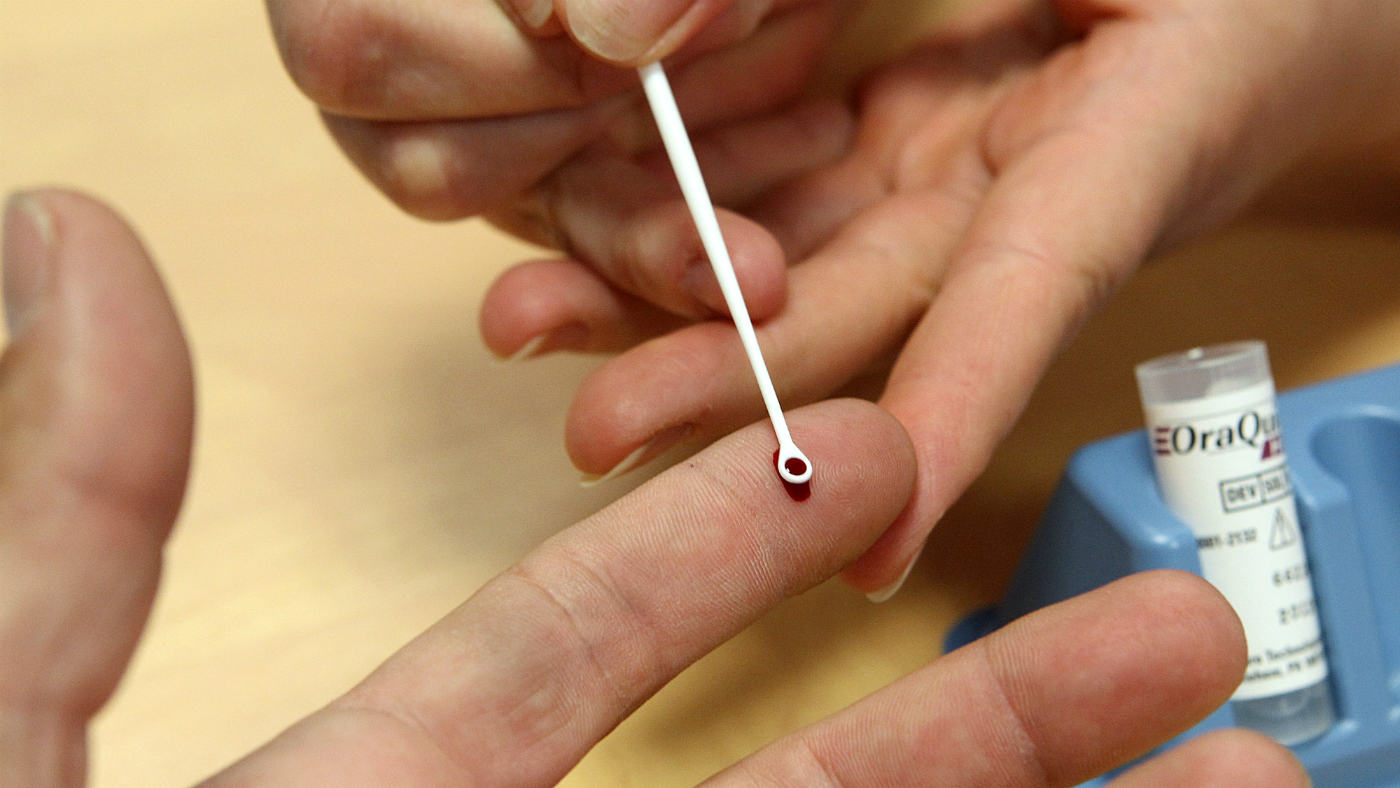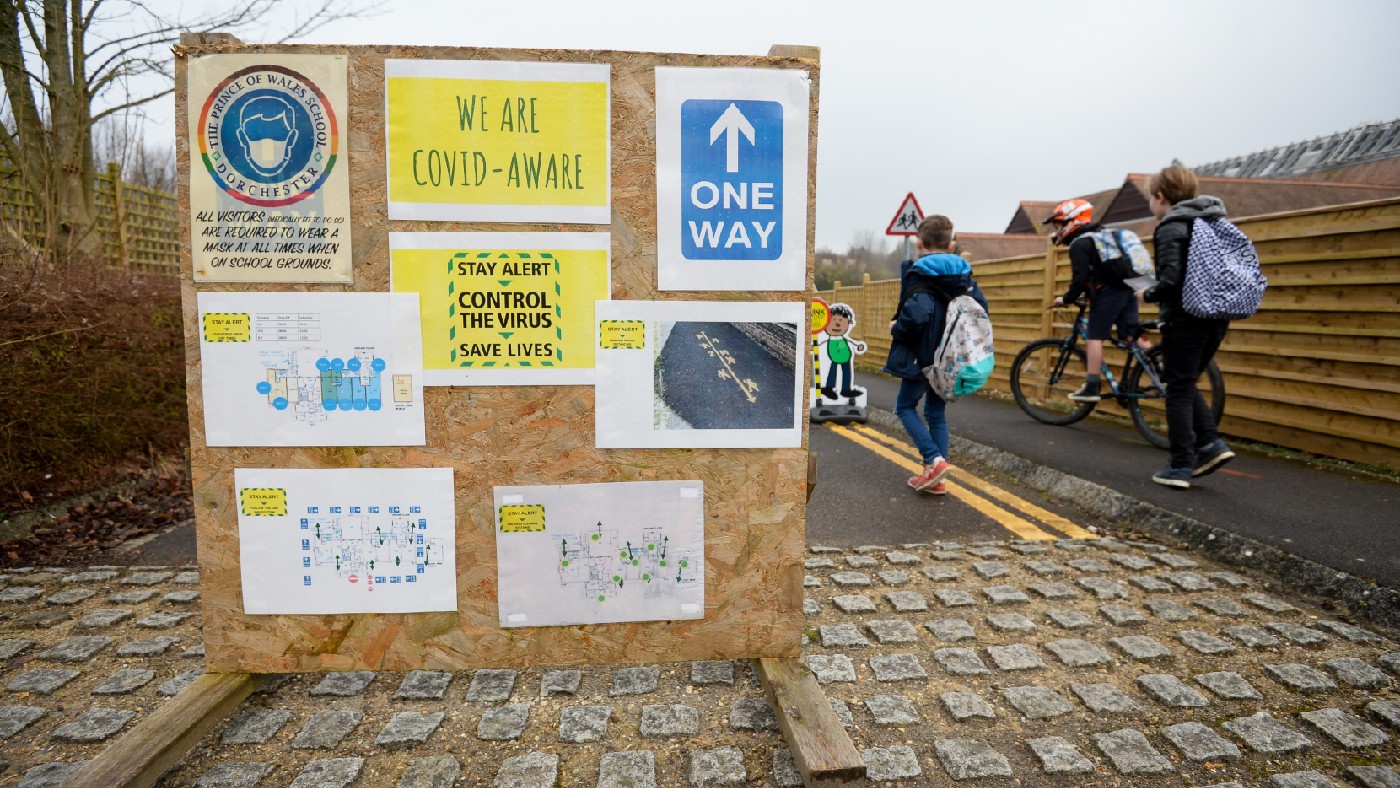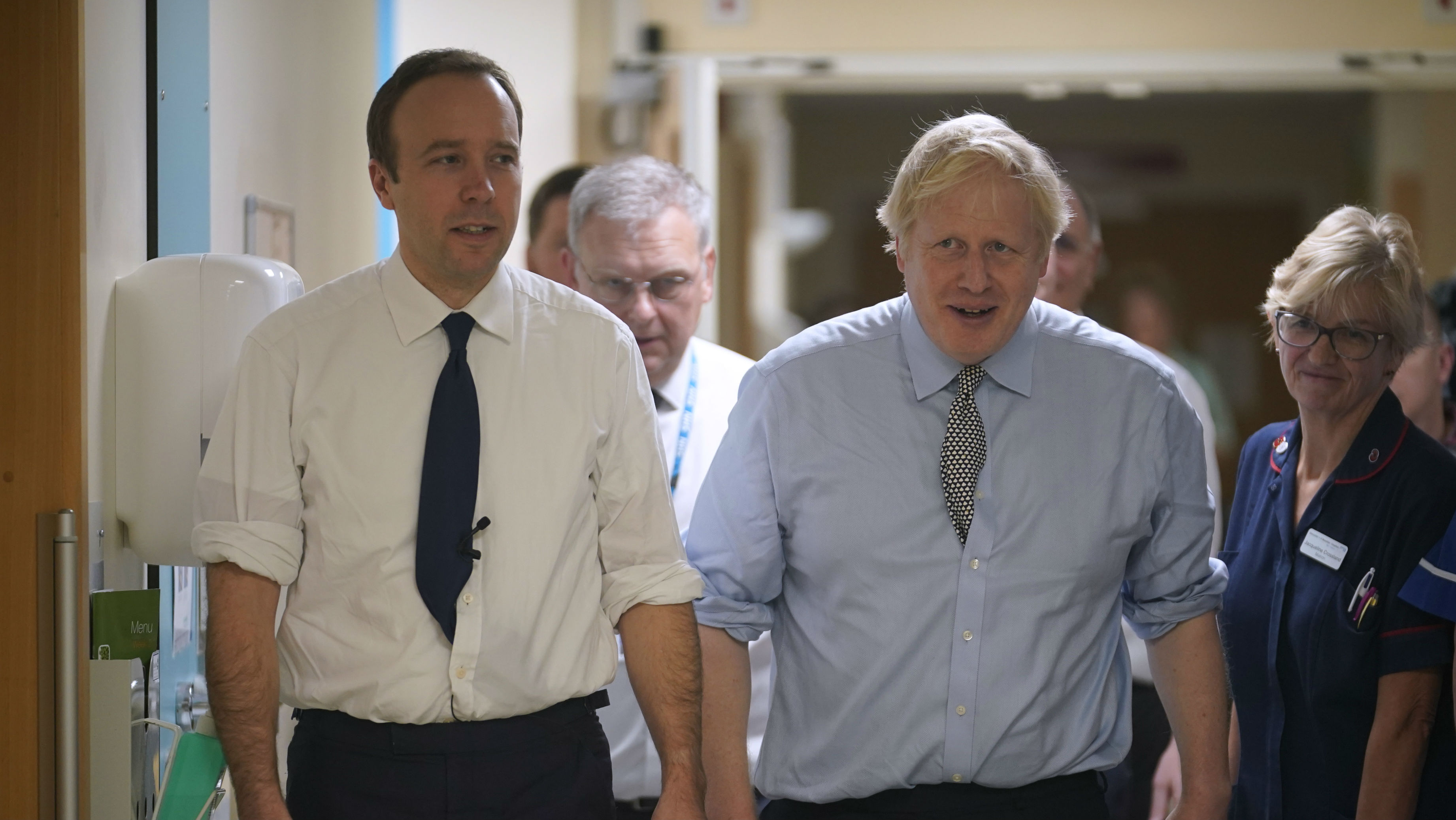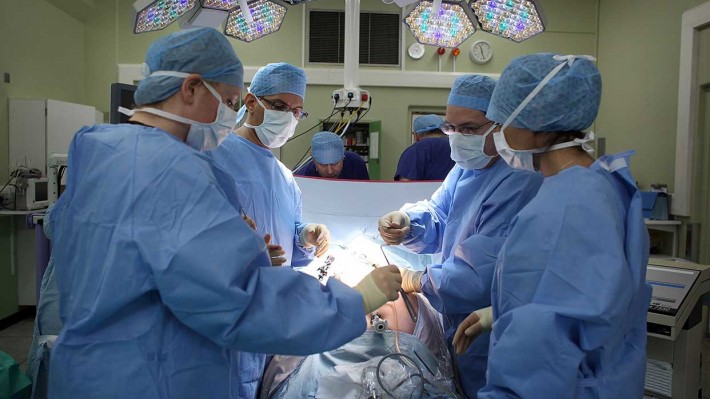Hepatitis C: what is it and what are the symptoms?
Experts say tens of thousands of Britons are unaware they have the deadly infection

A free daily email with the biggest news stories of the day – and the best features from TheWeek.com
You are now subscribed
Your newsletter sign-up was successful
Nearly 100,000 people in the UK could have unknowingly contracted the fatal liver disease hepatitis C, say health officials.
Public Health England (PHE) has warned that an estimated 95,600 people - mainly drug users - could have the disease without knowing it.
PHE’s estimate of infection numbers was based on anonymous health monitoring of drug users.
The Week
Escape your echo chamber. Get the facts behind the news, plus analysis from multiple perspectives.

Sign up for The Week's Free Newsletters
From our morning news briefing to a weekly Good News Newsletter, get the best of The Week delivered directly to your inbox.
From our morning news briefing to a weekly Good News Newsletter, get the best of The Week delivered directly to your inbox.
Steve Mowle, of the Royal College of GPs, said: “It’s extremely concerning to hear that so many people have undiagnosed hepatitis C. It’s a dangerous disease for individual patients and a significant public health risk.”
The virus is blood-borne and is usually transmitted through contaminated needles. Nine in ten people infected with the hepatitis C virus (HCV) inject recreational drugs such as heroin or have done so, says The Guardian.
And although the number of people injecting heroin is declining, some drug users also inject stimulants, cocaine and crack cocaine.
“These [drugs] are associated with more frequent injection, more damage at the injection site and with the spread of viral and bacterial infection,” the PHE report says.
A free daily email with the biggest news stories of the day – and the best features from TheWeek.com
But the NHS says HCV can also be transmitted through sharing razors or toothbrushes, or in rare cases through unprotected sex.
Hepatitis C-related liver disease claimed 380 lives in the UK last year, down from the 468 recorded in 2015, says the Guardian
What are the signs?
Helen Harris, a senior scientist at PHE, said: “HCV is a blood-borne virus that can cause life-threatening liver disease, including cancer. However, those infected often have no symptoms until decades later, when their liver has been badly damaged.”
Where symptoms do occur, they can include: flu-like effects, such as muscle aches and a high temperature; feeling tired all the time; loss of appetite; abdominal pain; and feeling or being sick.
If you are worried you might have HCV, you can have a blood test to rule it out or confirm the virus. GPs, sexual health clinics, GUM clinics and drug treatment services all offer testing for hepatitis C.
How is it treated?
The good news for anyone worried they are infected with HCV is that 95% of sufferers who receive treatment can be cured.
Until recently, most people infected with HCV would be treated with two medicines: a weekly injection of pegylated interferon, and capsules or tablets of ribavirin.
But tablet-only treatment is now available for sufferers. “These new hepatitis C medicines have been found to make treatment more effective, are easier to tolerate, and have shorter treatment courses,” says the NHS. Tablets include the drugs simeprevir, sofosbuvir and daclatasvir.
Pamela Healy, chief executive of the British Liver Trust, said: “There is now an effective cure for everyone living with hepatitis C and ... the numbers of people living with HCV are going down. The challenge now is for us to find the tens of thousands – an alarming amount – who are currently undiagnosed.
“If you have ever dabbled with drugs, even when you were much younger, practised unsafe sex or had a tattoo while travelling abroad, please get yourself tested just to make sure,” she added.
-
 Why are election experts taking Trump’s midterm threats seriously?
Why are election experts taking Trump’s midterm threats seriously?IN THE SPOTLIGHT As the president muses about polling place deployments and a centralized electoral system aimed at one-party control, lawmakers are taking this administration at its word
-
 ‘Restaurateurs have become millionaires’
‘Restaurateurs have become millionaires’Instant Opinion Opinion, comment and editorials of the day
-
 Earth is rapidly approaching a ‘hothouse’ trajectory of warming
Earth is rapidly approaching a ‘hothouse’ trajectory of warmingThe explainer It may become impossible to fix
-
 Neanderthal gene ‘caused up to a million Covid deaths’
Neanderthal gene ‘caused up to a million Covid deaths’Speed Read Genetic tweak found in one in six Britons means cells in the lungs are slower to launch defences
-
 Legalising assisted dying: a complex, fraught and ‘necessary’ debate
Legalising assisted dying: a complex, fraught and ‘necessary’ debateSpeed Read The Assisted Dying Bill – which would allow doctors to assist in the deaths of terminally ill patients – has relevance for ‘millions’
-
 Vaccinating children: it’s decision time for the health secretary as kids return to school
Vaccinating children: it’s decision time for the health secretary as kids return to schoolSpeed Read Sajid Javid readying NHS England to roll out jab for children over 12, amid fears infections will rocket
-
 ‘Vaccination blunts, but does not defeat’: exploring Israel’s fourth Covid wave
‘Vaccination blunts, but does not defeat’: exploring Israel’s fourth Covid waveSpeed Read Two months ago, face masks were consigned to bins. Now the country is in a ‘unique moment of epidemiological doubt’
-
 Thousands told to self-isolate in Covid app pinging error, claims Whitehall whistleblower
Thousands told to self-isolate in Covid app pinging error, claims Whitehall whistleblowerSpeed Read Source says Matt Hancock was privately told of the issue shortly before he resigned as health secretary
-
 Record 5.45m people on NHS England waiting lists
Record 5.45m people on NHS England waiting listsSpeed Read Health chief warns that crisis is nearing ‘boiling point’ as backlog grows
-
 Covid testing: the ‘great new game of holiday roulette’
Covid testing: the ‘great new game of holiday roulette’Speed Read On one day last week, the price of a private PCR test ranged from £23.99 to £575
-
 San Marino is first European country to offer ‘vaccine vacation’
San Marino is first European country to offer ‘vaccine vacation’Speed Read Tiny landlocked nation to give Russian Sputnik vaccine to paying tourists